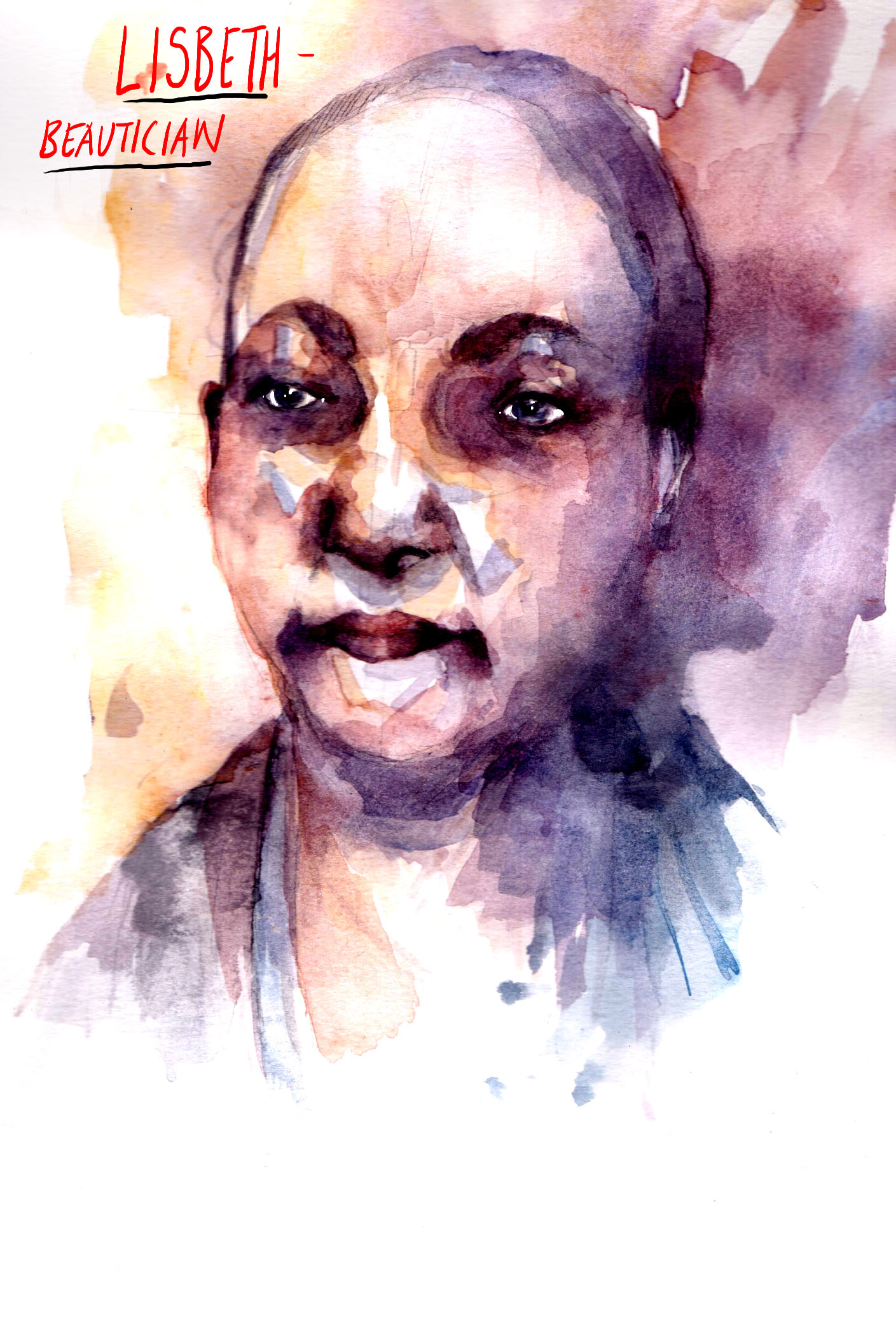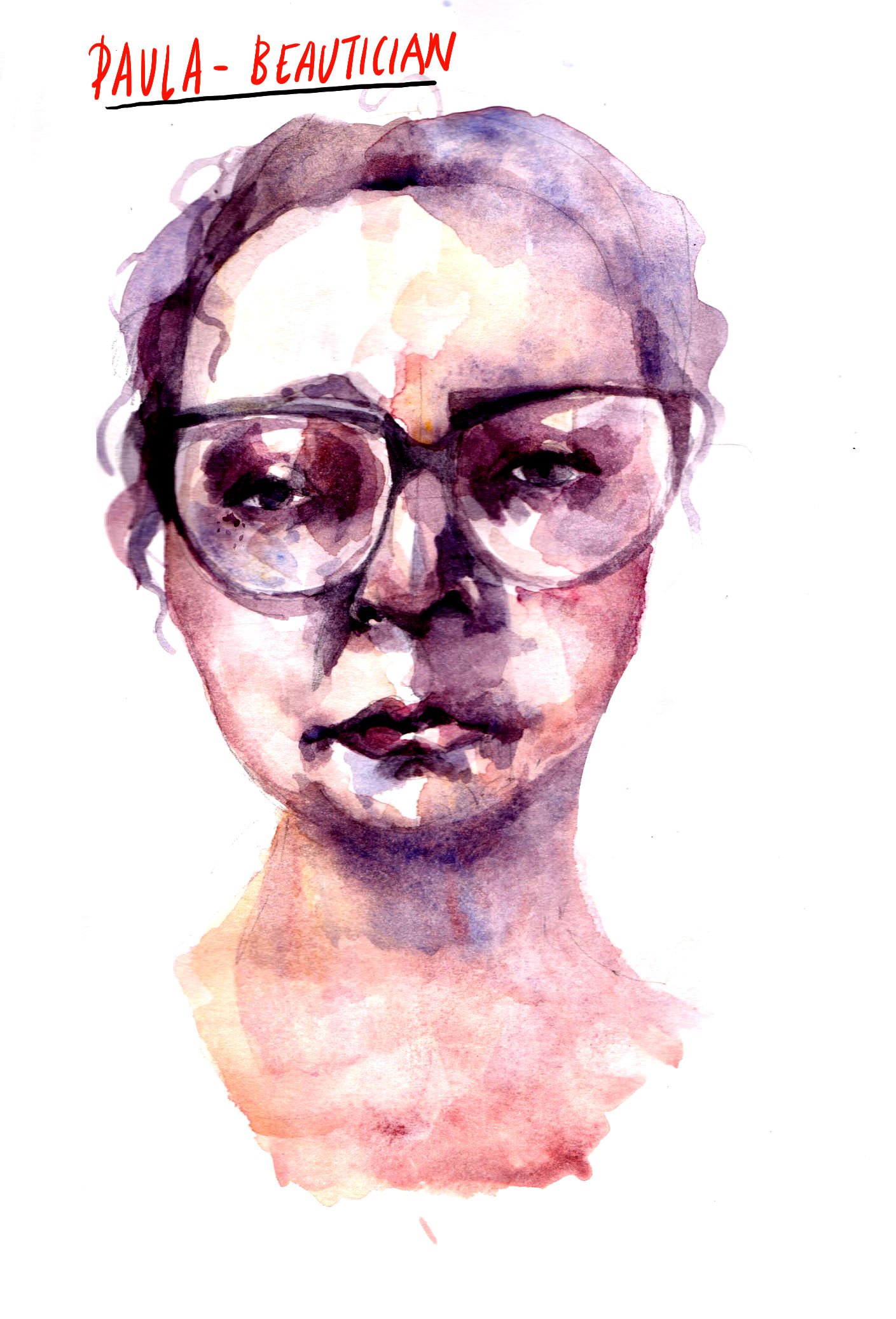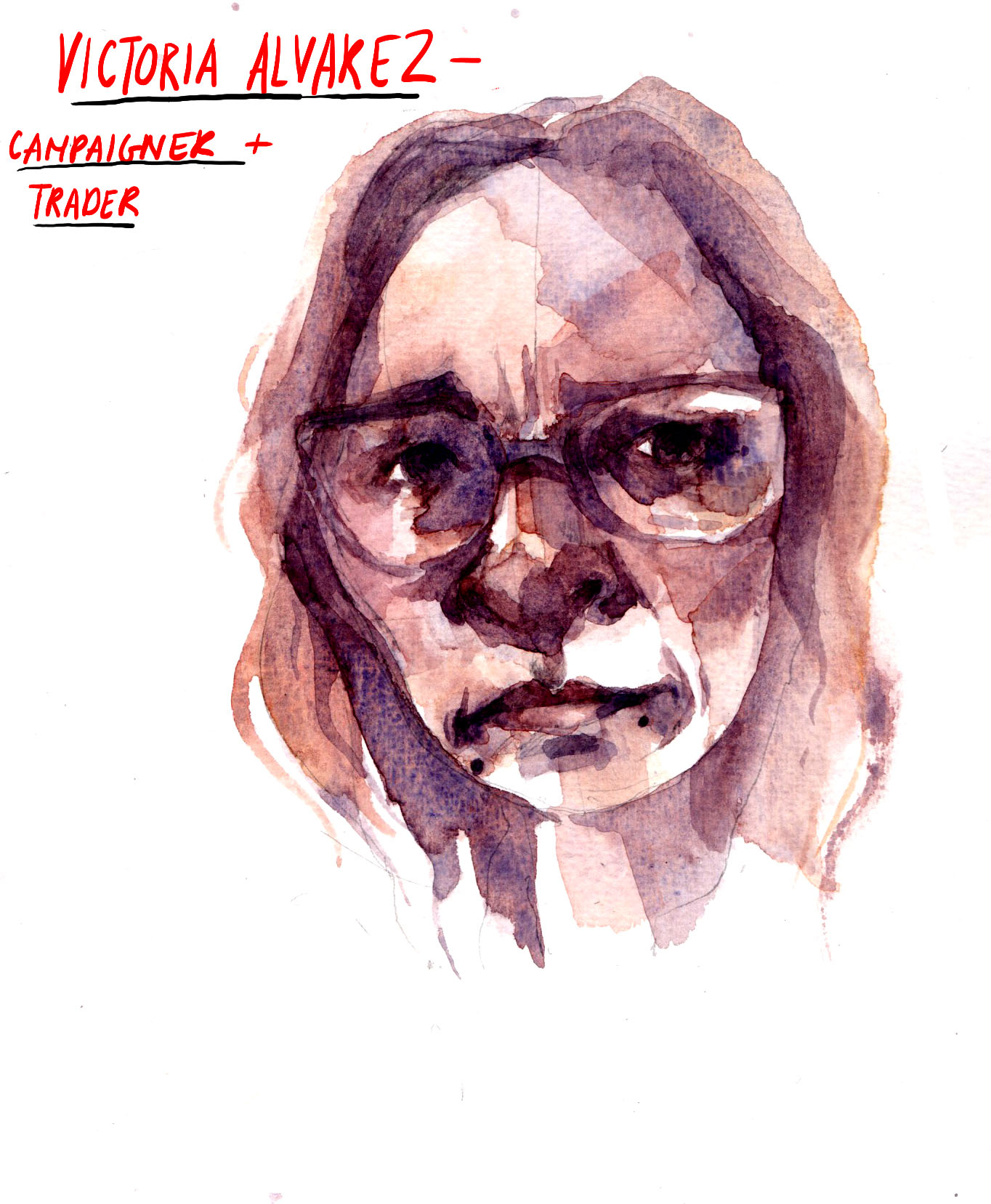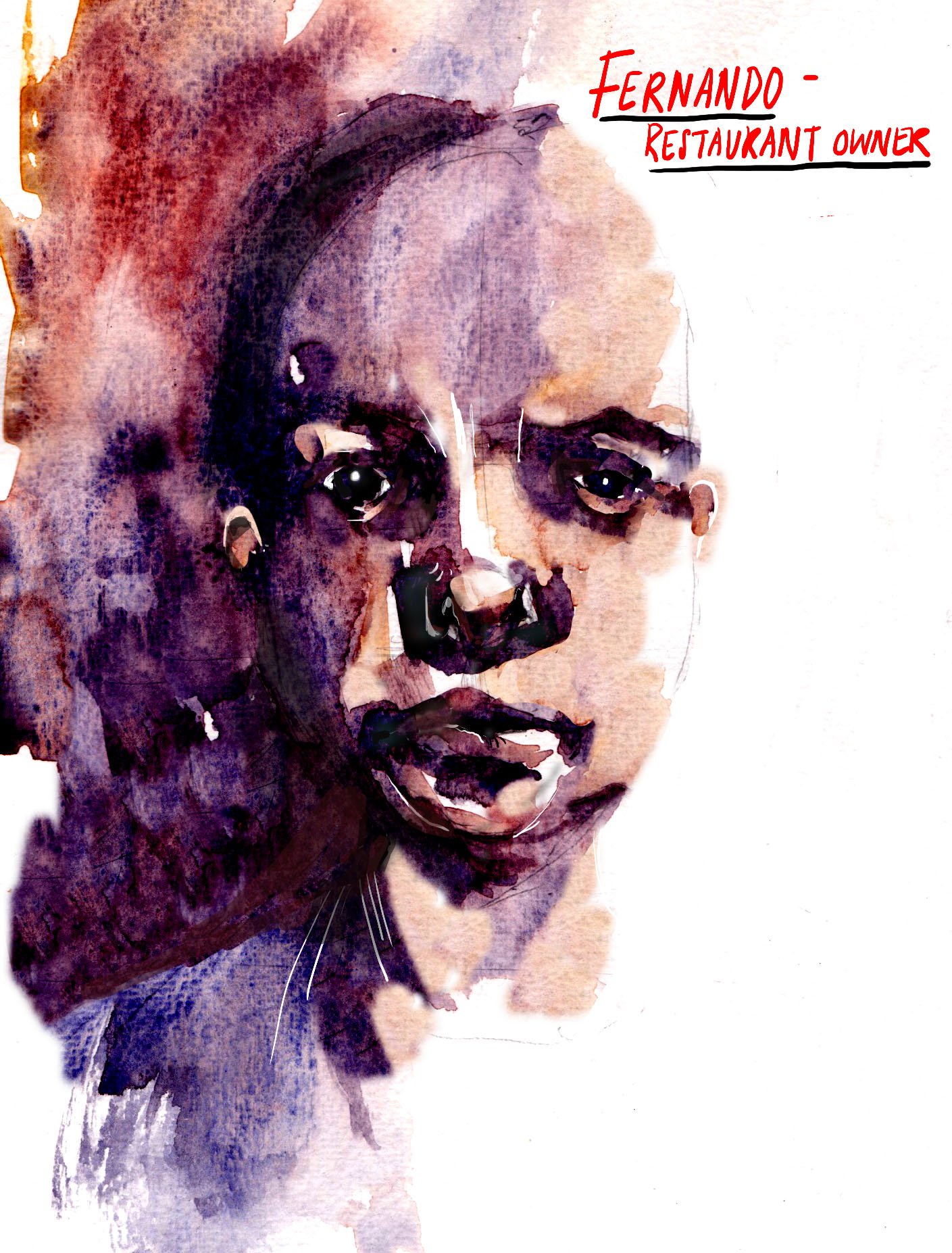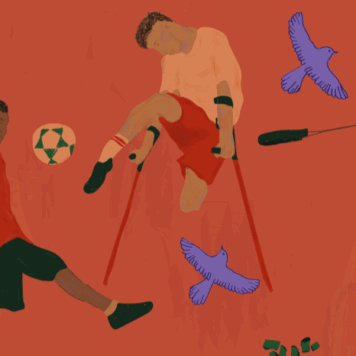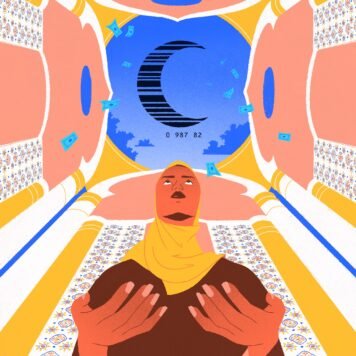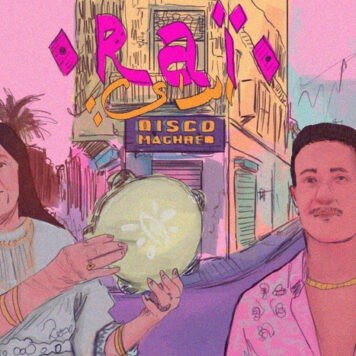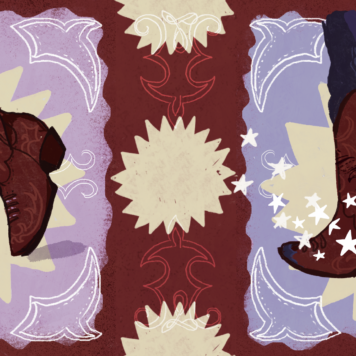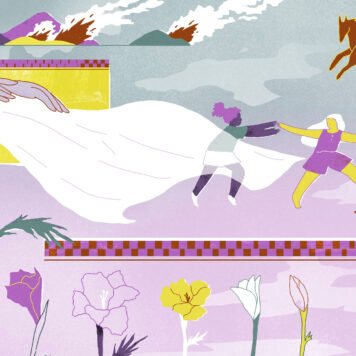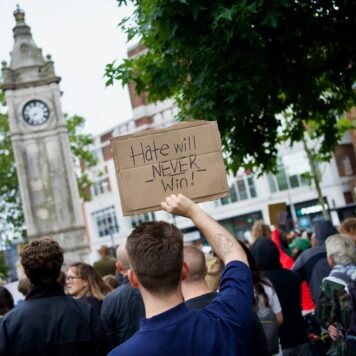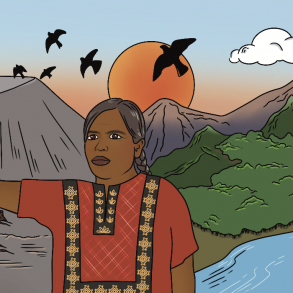“Imagine a society where money plays little or no role, where people rescue each other and then care for each other, where food is given away, where life is mostly out of doors in public,” Rebecca Solnit wrote in 2009. This utopia is not a place but a feeling; the fleeting purposeful joy that emerges in the wake of disaster.
The Latin Village emerged from a defunct Edwardian department store in Tottenham, North London. Over three decades, a migrant community of market traders grew up behind its crumbling walls, filling its alleys with the aroma of coffee and the strains of salsa. Today it houses 60 independent businesses and employs around 150 people.
The shell of the building, tatty from years of managed decline is held together by the delicate web of relationships forged by the people who work there. Cracks in the walls and flaking paint, leaks that are stubbornly ignored by the management are patched over with delicate wooden eaves and balconies installed by the traders.
“The building is the body and we are the soul,” campaigner and trader Vicky Alvarez told me when I first came to the market. It is only in the context of a crisis, with the proliferation of mutual aid networks springing up to plug the gaping holes in aid provision, that I fully understand what she meant.
“We’ve been a mutual aid network for decades. The market was built for this purpose..that is how we work and how we’ve evolved. If you’re Latin, it’s embedded in your DNA.”
When they were informed via email that the market would be closing indefinitely for lockdown, the traders reconstructed their web via whatsapp groups and zoom calls.
As lockdown began to lift in the UK, the traders returned, but they were greeted with padlocked doors and a car park strewn with rubbish. The market manager, Jonathan Owen who, catching wind of a few of the restaurant owners’ plans to set up a takeaway service with the easing of lockdown, had changed the locks.
The market is all we have
On June 15th, the traders congregated outside the market’s barred doors. They stood in a circle, carefully distanced from one another, emerging from weeks in isolation. They shared stories of lockdown- of financial struggle, of loneliness.
Behind the padlocked doors was their market- a labyrinthine warren of beauty salons, restaurants, butcher shops whose bustling corridors now stand eerily sombre and silent.
“We’re under a lot of pressure because it’s been almost 2 months with almost no income.” Vicky addressed the assembled traders: “We can open and implement safety measures, we are a cooperative and responsible community. The council is saying we can’t – but that’s because they want us gone.”
The negligence of the Council, the landlord, TFL and the openly abusive manager meant the traders had learnt very early on in their tenancies that if they wanted something done properly, they had to do it themselves. The market interior is ramshackle- bedecked with ornate mezzanines and fixtures fashioned by the traders, some of which were torn down the management. The floor is chequered with cheap carpet tiles and newer linoleum that the traders paid for and installed themselves. The patchwork look of the building with its padlocked doors is emblematic of this decade-long struggle between the determined negligence of the authorities and the nurture and care of its tenants.
In response to the traders’ meeting, Owen called the police. Vicky calmly explained; “We are not the criminals, they are. We’re going to meet here everyday, as this is all we have.”
I’ll give you a f****ing war
This unprepossessing building is the site of a 16 year battle between the traders and the huge corporate property developer, Grainger plc., whose plans to ‘redevelop’ the market would see it replaced with 40,000 sq ft of retail space and 196 residential units – none of which will be affordable housing. The redevelopment is supported by the local Council – who promoted a CPO for its compulsory acquisition.
The site is owned by TFL who lease it to Market Asset Management (MAM), one of the companies driving gentrification of markets under the guise of ‘professionalising’ council market management. MAM is represented at the Latin Village by the company director, Jonathan Owen; also appointed market facilitator by Grainger to represent the interests of the traders.
In the Latin Village, Owen’s professional management style manifests itself in shoddy maintenance and reported verbal abuse and racial slurs, he reportedly referred to traders ‘bloody illegal immigrants’ and threatened to wage ‘a f***ing war” on them.
Haringey Council and TFL have repeatedly disowned any responsibility for Owen’s “professionalism;” in a response to a solicitor’s letter sent in January 2020 about reports of escalating abuse, TFL said “its resources are better deployed in cooperation with its tenants than in commercial confrontation.”
This has created an atmosphere of impunity, in which the traders are subject to the whim of a man who boasts that he could “get rid of 90 per cent of [them] if [he] wanted.” Much like the flammable cladding wrapped around Grenfell, corporate impunity has potentially fatal implications for an already vulnerable community under the jurisdiction of a Momentum-led council. All it needed was a crisis to blow up.
Then came Covid-19.
Subscribe to shado's weekly newsletter
Exclusive event news, job and creative opportunities, first access to tickets and – just in case you missed them – our picks of the week, from inside shado and out.

The lights go out
With no natural light the traders scrabbled in the dark and fended for themselves – candles were dotted on tables, they clubbed together and bought a generator. Food stalls lost perishable food stock, equipment was irreparably damaged. Owen was bailed out by TFL to the tune of £86,000. The traders have still not received compensation.
Instead, following Boris Johnson’s announcement of closures of non-essential businesses in the wake of COVID-19 lockdown on March 23rd, the traders were informed via email that the market would close indefinitely. It didn’t matter that many of the traders ran essential businesses in the market, that they supplied affordable, culturally appropriate food to minority groups, that the market’s relatively short supply chain meant it was a more robust and reliable supplier. The traders knew from experience that they didn’t have a say.
Throughout lockdown, the traders were still left in the dark. Awaiting delayed business grants and existing off loans, they were still receiving rent invoices from the market management; just last week, traders were invoiced for July.
Vicky and Mirca
Vicky, and fellow Latin village campaigner, Mirca Morera spent lockdown mired in paperwork, helping the traders navigate grant applications – “I’ve just spent the day trying to get to grips with it myself” a harassed Vicky told me via video call.
“No one else is going to help them. A lot of them don’t speak English – That’s the biggest barrier, they rely on us.” Vicky knew from bitter experience that any support that was on offer by the council would be unreliable, painfully slow to materialize and inaccessible. “I was receiving calls from people I’ve never met before… people who were too scared to call the food aid number supplied by the council – they asked too many complicated questions. They thought they’d get into trouble – I’d ask them, “Why? You’re a cleaner, you’ve nothing to hide?” But they were just too scared to seek help from the council. So I just did it myself… not that I have a lot but I will share what I can.”
In addition to the reams of paper work, Vicky was also doubling up as a counsellor; she called around the traders daily to check on them, looping them all into patchy conference calls. “I made sure they have my number in case anyone has a breakdown, they know I’m here to listen to them…[many of them] don’t have family here, when they call me, they sound desperate. They don’t know where to go or what to do – the only thing they know is the market,” Vicky told me. She’d been receiving tearful phone calls from a young man with learning difficulties who had structured his life around the market; he only knew the journey to the market and back to his home.
Fabian
On April 1st, 48 year old Fabián Alberto Cataño Cadavid, a Colombian refugee who runs the Manantial Restaurante at the market, was hospitalised with COVID-19. He was taken to ICU, unable to breathe and was hooked up to a ventilator for 28 days. When he was taken off the machine, his lungs didn’t respond so he was put into an induced coma. I spoke to Vicky during this time and could see the anguish on her face over the glitchy webcam. “When I got the news, I just needed to go to bed.”
I spoke to Fabian when he’d been sent home, still breathless and supported by crutches. He spoke candidly about how vulnerable he’d felt: the virus had flattened him.
Prior to his hospitalisation, on January 24th, Fabian had arrived at the market to find his unit plastered with eviction notices threatening that “any attempt… to re-enter said premises will result in criminal proceedings”. This was the latest in a slew of eviction threats and harassment by the market manager.
A survivor of the 2007 tube bombings, Fabian reported suffering worsening panic attacks as a result of protracted harassment and racial abuse by Jonathan Owen. Soon after Owen’s appointment as market manager, Fabian’s electricity bills jumped from £140 to £980 a month.
Two years ago, when Fabian took Owen to court over racial harassment, Owen responded by falsely accusing him of not paying his rent. After the trial, Owen instructed his supervisors to not accept any rent money from Fabian, to pretend “as if he didn’t exist.”
Fabian was central to the fabric of the market, “If there was a job that needed doing around the market; fixing things, cleaning, I’d be the one to do it. He victimised me because I’ve been at the market for 18 years, people see me as a community leader.”
When I asked him if this had contributed to the severity of his illness, he answered without pausing to think, “Yes. My health has been deteriorating since Jonathan Owen took over management at the market.”
Fabian’s restaurant is now open again for business.
Corina
I speak to Corina, a beautician at the market, on her way to a hospital appointment. She’s barely able to hold back tears throughout the interview: “Until now, the market has given me everything because I was a single mum, and for the past 16 years , I had to look after my children and raise them by myself. My only help and hope was the market.”
Corina suffers from lumbar disc degenerative disease, fibromyalgia and trigeminal neuralgia. For the past 2 years she’s been in chronic pain, “I’m on morphine 24 hours a day.”
Her part time job at the market supplemented the ‘high’ disability allowance of £466 a month. When it closed, Corina was forced to borrow money from friends as the small business grant from the government took weeks to arrive.
“Lockdown coincided with my daughter’s GCSEs and she had to buy books for her studies, I had to scour the internet for cheaper ones. Without that support how can you purchase that stuff? The kids are growing, they need everything. You can’t do that off £466.”
The market didn’t just provide her with income. It was a vital support network that stopped her and her family from falling through the cracks. She began to weep as she recounted the free haircuts, the hospital visits from the traders who brought her special purees when she couldn’t eat properly. When she collapsed at the market and was taken away in an ambulance, the traders took her children home and watched them until she returned.
“All these things count, if they don’t count what does?” she demanded.
Hope in the Dark
On the 22nd June, the traders received a letter from TFL stating that MAM “ has not complied with its obligations,” and due to the fact the company was now insolvent, they were terminating the lease.
Subsequently, the traders received another belligerent email from Owen denying the claims of insolvency and stating that “TFL does not have the ability to demand this.” He asserted that his company remained “in control” of the market and demanded that all rental arrears be paid to MAM if the traders wanted to begin trading again.
He closed the email with an accusation of ‘theft’ by traders who he claimed connected to the landlord’s power supply during the power cut; threatening “robust cost recovery measures.”
Vicky’s response was to laugh. After years of her complaints falling on deaf ears at TFL and the council, it’s taken a pandemic to force them to act; .“There’s nothing quite like saying “I told you so,” she said, smiling.
There is still no commitment from TFL, despite the reopening of non essential businesses elsewhere, when the traders can open up shop.
While those in charge have been busy finding ways to keep the traders out and shirking responsibility, the traders designed their own safety guidelines for reopening; cleaning stations, people manning exits and regulating incomers. Once again they confronted authorities’ apathy with ingenuity and resourcefulness.“At the moment everything is trial and error – we’re here to learn and if we make mistakes we’ll correct them,” Vicky said, “We’re not a liability, we’re trying to support the community.”
When I asked how lockdown had impacted her campaign, she gave a defiant reply: “It’s given me clarity of purpose. It has made me realise the importance of us working together in order to prepare for the challenges ahead. It’s more challenging right now but we’ve got the will to carry on.”
The Latin Village provided a glimpse of the ‘utopia’ that Solnit describes. As the traders discovered, this utopia is amorphous; it is found not in the bricks and mortar of the Edwardian structure they inhabited, but in the myriad of gestures that their relationships were built on. The free haircuts, the hospital visits, the wooden trellises and DIY repairs to the shop fronts. The trader’s indomitable spirit of mutual aid has woven a robust web of connections that has seen off decades of eviction threats. The pandemic has further tested this fabric, but instead of fraying, the threads have knotted tighter together.
The lights may have gone out in the market corridors, but the traders will break the doors down to restore them; and it’ll take more than a padlock to keep them out.
Words by Katherine Hearst
Translation by Viviana da Silva Pacheco
To find out more about the Save Latin Village Campaign and ways to support head to their twitter @LatinVillageUK
See more of Katherine’s work on her website katherinehearst.com
Fabian’s restaurant is now open for business – see more (https://www.instagram.com/botellonlatinouk/)
